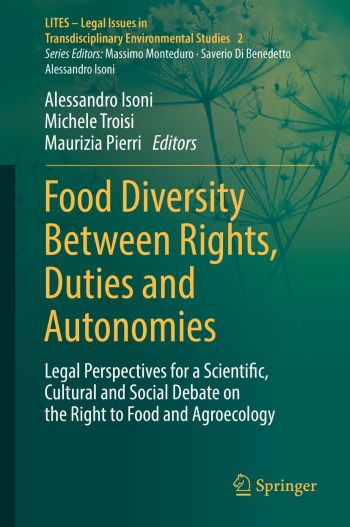
The book reflects on the issues concerning, on the one hand, the difficulty in feeding an ever- increasing world population and, on the other hand, the need to build new productive systems able to protect the planet from overexploitation.
The concept of "food diversity" is a synthesis of diversities: biodiversity of ecological sources of food supply; socio-territorial diversity; and cultural diversity of food traditions. In keeping with this transdisciplinary perspective, the book collects a large number of contributions that examine, firstly the relationships between agrobiodiversity, rural sustainable systems and food diversity; and secondly, the issues concerning typicality (food specialties/food identities), rural development and territorial communities. Lastly, it explores legal questions concerning the regulations aiming to protect both the food diversity and the right to food, in the light of the political, economic and social implications related to the problem of feeding the world population, while at the same time respecting local communities' rights, especially in the developing countries.
The book collects the works of legal scholars, agroecologists, historians and sociologists from around the globe.